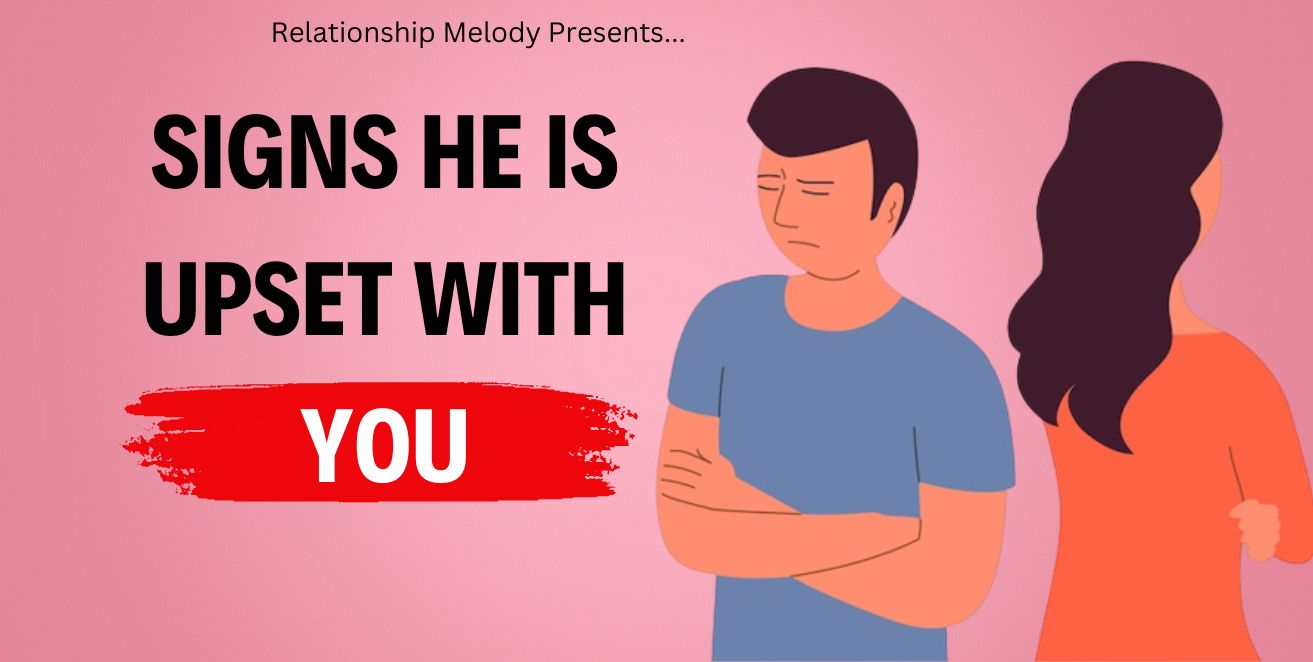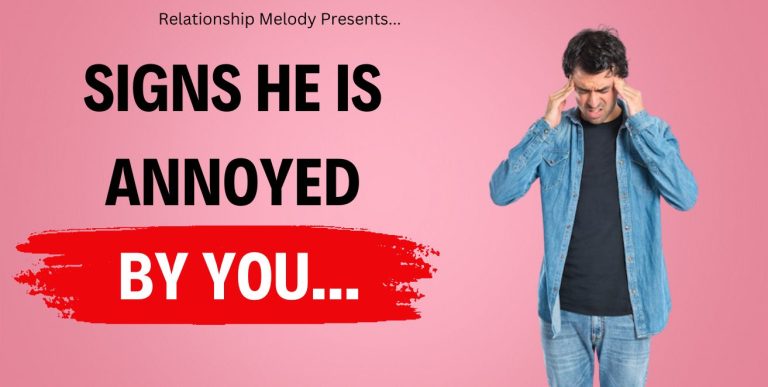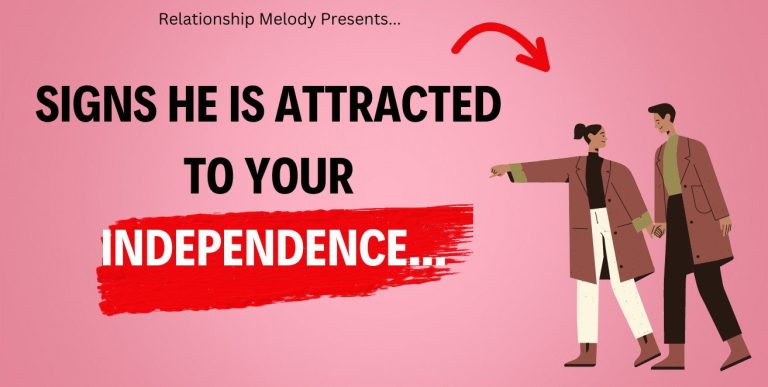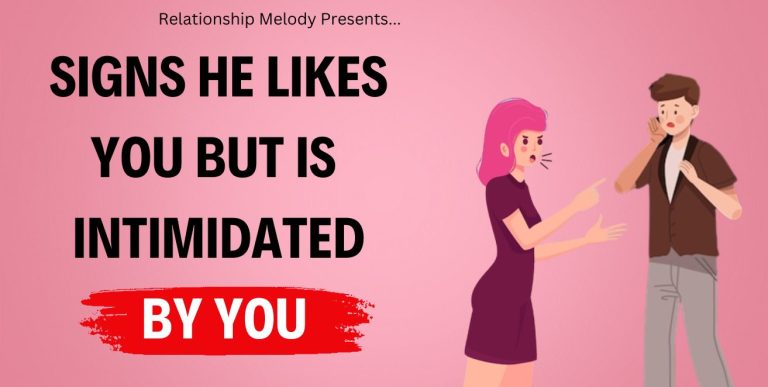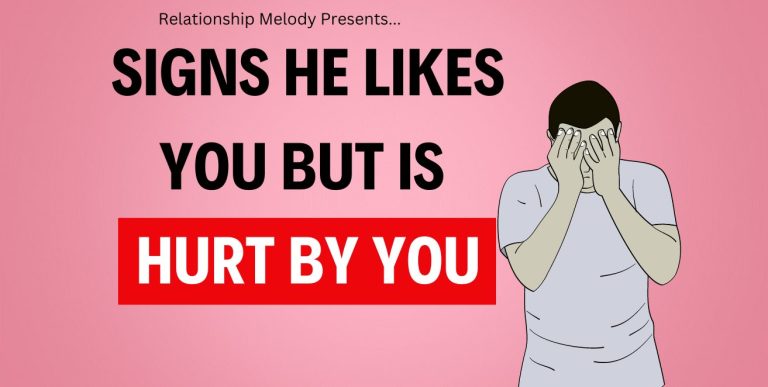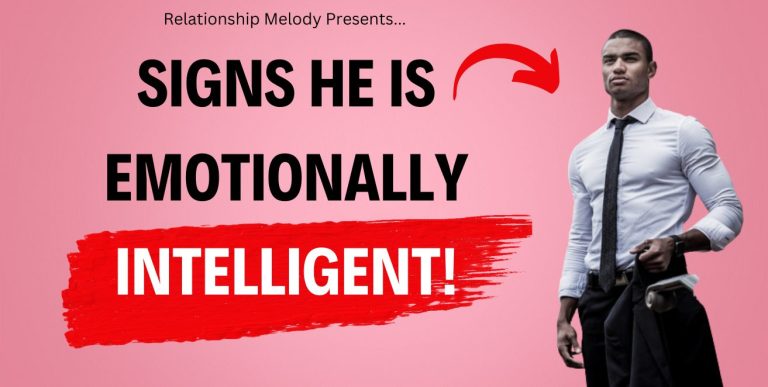25 Signs He Is Upset With You
Communication is the key to a healthy and thriving relationship. However, there are times when our partners might struggle to express their emotions openly, leaving us puzzled and unsure about their feelings.
If you’ve been sensing some distance or tension in your relationship, it’s essential to pay attention to the subtle signs that might indicate your partner is upset with you.
In this blog post, we will explore 25 common signs that can help you understand your partner’s emotional state better
25 Signs He Is Upset With You
Here are 25 signs to know.
#1 Change in Communication Patterns:
When your partner becomes less responsive or avoids meaningful conversations, it could be a sign of their distress.
#2 Increased Criticism:
If you notice your partner criticizing you more frequently or being overly nitpicky about your actions, it might be an indication of their frustration.
#3 Reduced Affection:
A decline in physical and emotional affection, such as fewer hugs, kisses, or compliments, could signify their unhappiness.
#4 Frequent Arguments:
Heated arguments or disagreements that arise more often than usual might indicate unresolved issues and resentment.
#5 Avoiding Eye Contact:
Avoidance of eye contact during conversations might suggest discomfort or guilt.
#6 Unexplained Mood Swings:
Sudden shifts in your partner’s mood, from being happy to being easily irritated or sad, can signify inner turmoil.
#7 Decreased Intimacy:
A decline in intimacy, such as reduced sexual desire or lack of initiation, may imply emotional disconnection.
#8 Passive-Aggressive Behavior:
Your partner might resort to indirect communication or subtle acts of aggression to express their dissatisfaction.
#9 Social Withdrawal:
If your partner starts pulling away from social gatherings or avoids spending time with you, it could be a sign of resentment.
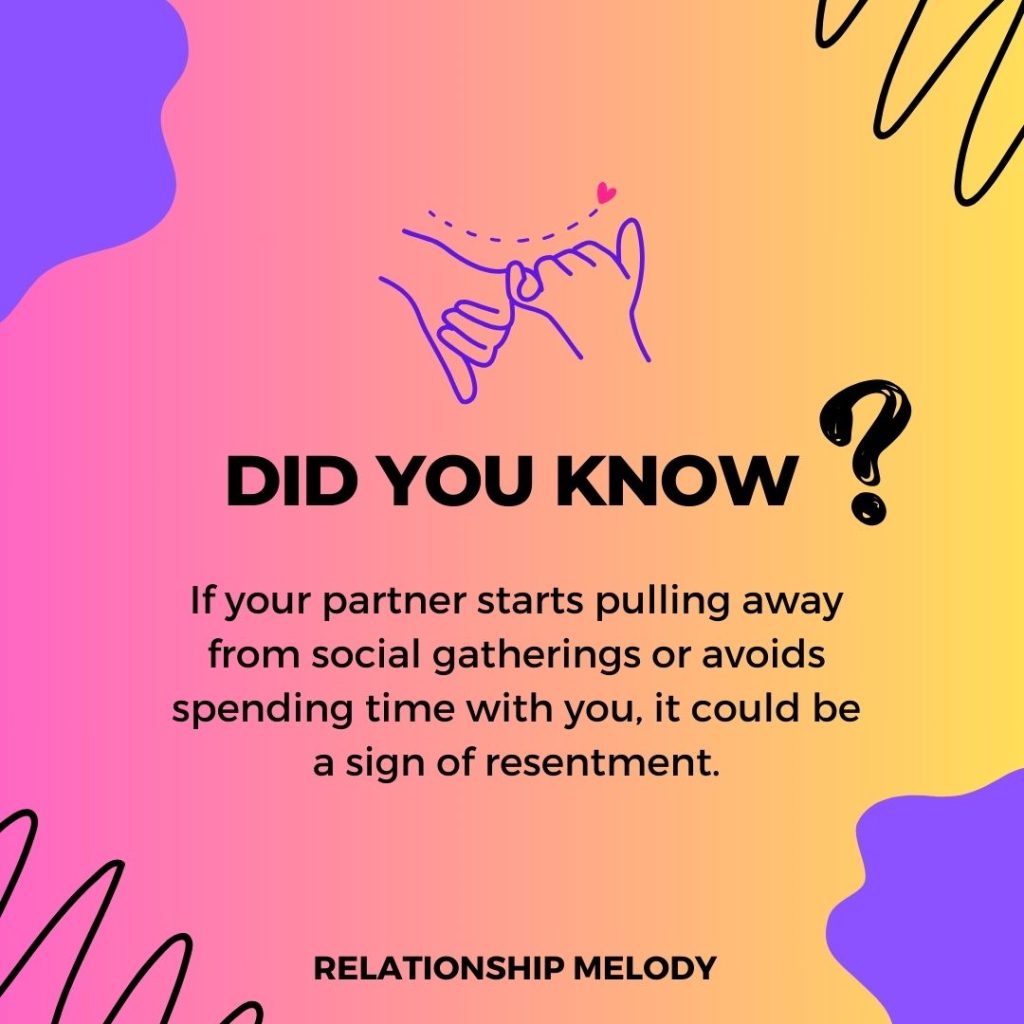
#10 Change in Sleep Patterns:
Insomnia or excessive sleeping might be a reflection of your partner’s emotional distress.
#11 Unresponsiveness to Your Needs:
When your partner becomes indifferent to your desires or requests, it could signify their discontent.
#12 Increased Defensiveness:
A heightened defensiveness and sensitivity towards criticism may imply that your partner is harboring negative emotions.
#13 Loss of Interest in Shared Activities:
Lack of enthusiasm or participation in activities you both once enjoyed might indicate their unhappiness.
#14 Lack of Future Planning:
If your partner stops discussing plans or seems disinterested in making long-term commitments, it could be a cause for concern.
#15 Emotional Detachment:
Your partner may seem emotionally distant, unengaged, or unresponsive to your attempts to connect with them.
#16 Excessive Absentmindedness:
Frequent forgetfulness or a lack of attention to detail may indicate that your partner’s mind is preoccupied with negative thoughts.
#17 Change in Tone and Language:
Harsh or dismissive language, sarcasm, or a generally negative tone can be indicative of their upset emotions.
#18 Increased Solo Activities:
A sudden preference for spending more time alone or pursuing individual interests may suggest their need for space.
#19 Loss of Appetite or Overeating:
Extreme changes in eating habits might be a manifestation of your partner’s emotional distress.
#20 Lack of Support:
If your partner becomes less supportive or fails to acknowledge your achievements, it could reflect their disapproval or dissatisfaction.
#21 Excessive Criticism of Others:
Noticing an increase in your partner’s critical remarks towards others might signify underlying frustration that they are projecting onto others.
#22 Excessive Focus on Work:
Escaping into work excessively might be a way for your partner to avoid addressing their emotional issues.
#23 Increased Impatience:
Impatience or irritability over minor issues might be an expression of their inner turmoil.
#24 Non-Verbal Cues:
Pay attention to body language, such as crossed arms, avoiding physical contact, or frequent sighing, as they can reveal unspoken emotions.
#25 Reluctance to Apologize:
If your partner avoids apologizing or taking responsibility for their actions, it might indicate their struggle to confront their own emotions.
Read more: Signs He Is Trying To Forget You.
Conclusion:
Remember, these signs should be considered as possible indicators, but it’s essential to communicate openly and honestly with your partner to truly understand their feelings.
Recognizing these signs can help initiate a conversation about any concerns, fostering a healthier and more fulfilling relationship.
By acknowledging and addressing the issues together, you can navigate through rough patches, strengthen your bond, and create a supportive space for both of you to grow.
Liked Our Article?
Our Patreon link: https://www.patreon.com/RelationshipMelody

Welcome to Relationship Melody! Our website is dedicated to all things on relationships, dating, and love! We are passionate about helping you navigate the ups and downs of love, and our goal is to provide you with valuable insights and information that will make your journey toward a fulfilling relationship smoother and more enjoyable.

